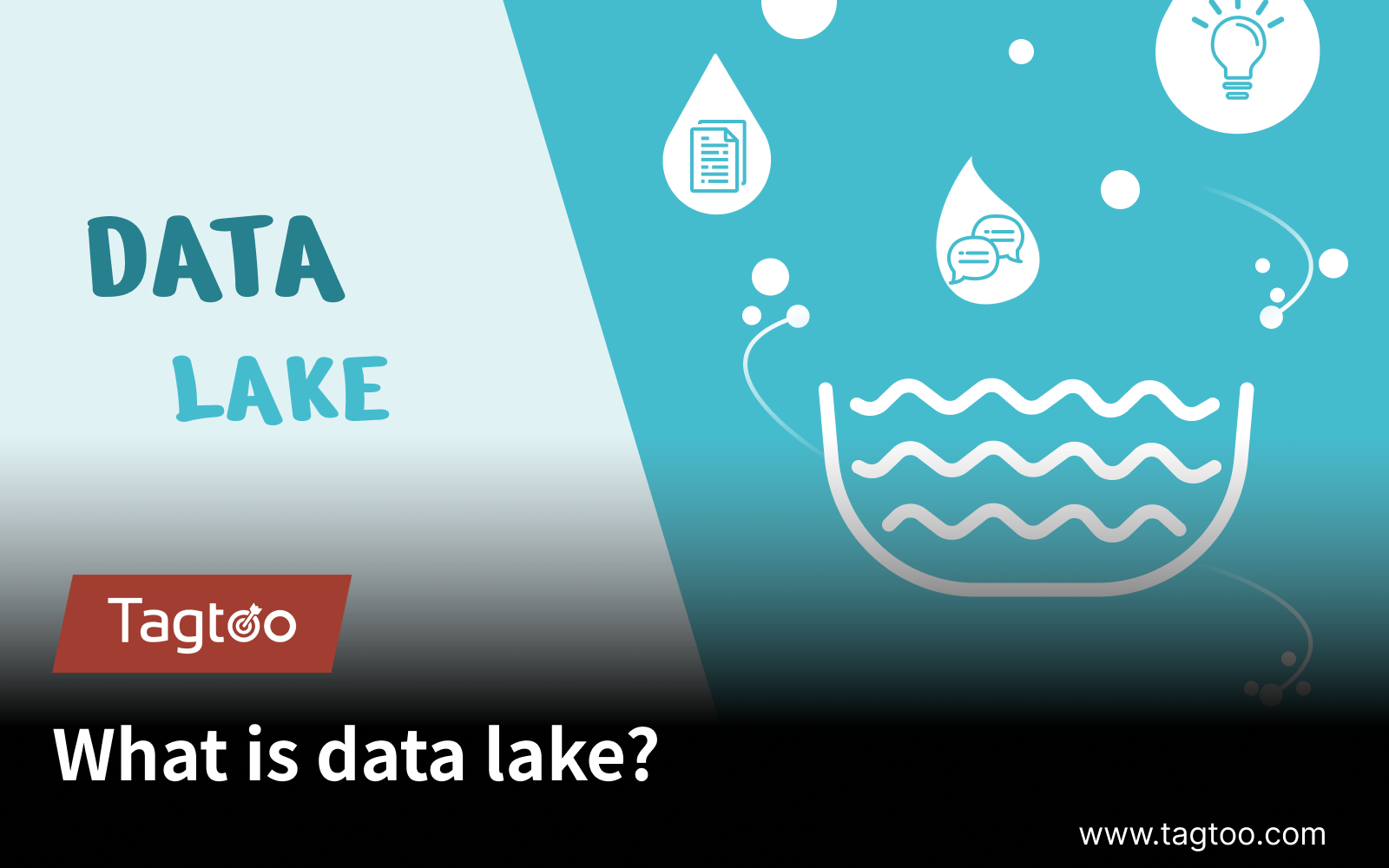Data is highly valuable for businesses as it provides objective insights to facilitate informed decision-making. However, large enterprises confront the challenge of managing and harnessing the influx of vast amounts of data. In this context, the concept of a "data lake" has emerged as a solution, offering businesses a flexible, scalable, and powerful data architecture. This article delves into what a data lake is and how it assists enterprises in achieving their objectives.
What is a Data Lake?
A data lake is a repository for storing extensive volumes of data. It can house a wide variety of data from different sources within an enterprise. This allows for easy retrieval of data when needed, facilitating efficient analysis and informed decision-making.
Having a data lake not only enables internal storage of diverse data within a business but also fosters information flow and sharing across departments. This prevents businesses from encountering data silos. Employees at all levels of the organization can access relevant data from other departments based on their operational needs, conduct in-depth analysis, and formulate effective strategies.
Data Warehouse vs. Data Lake:
Data Warehouse and Data Lake are both storage solutions, although they exhibit significant differences in terms of usage.
Data Warehouse: Due to system constraints, data stored in a data warehouse must adhere to strict structuring requirements. This implies that only data with consistently structured formats can be stored in a data warehouse. Not all types of data can be accommodated in a data warehouse. Application: Since the data in a data warehouse is pre-organized, it can be directly utilized in data visualization software (e.g., Looker Studio) for analysis. Data Lake: The system does not impose any specific format requirements for data, enabling storage of data with varying structures. Data can be ingested into a data lake without the need for prior organization or cleaning, accommodating the diverse forms of structured and unstructured data. Application: As any type of data can be stored in a data lake, it serves as an extensive repository. This is advantageous for data scientists who can access data from the data lake for activities such as machine learning and data analysis. Both storage spaces have their own strengths and distinct applications. They complement each other, and there isn't a straightforward "better than the other" determination; rather, they serve different purposes in a complementary manner. Advantages of a data lake: Effective Business Operations Management: Data lakes enable more efficient management of company operations through better utilization of data. Predictive Models for Customer Segmentation: By employing predictive models based on purchasing behavior, customers with similar preferences can be categorized, increasing the effectiveness of targeted advertising efforts. Risk Management and Fraud Detection: Utilizing the vast volume of data in a data lake can lead to the training of models that assist businesses in risk management and detection of potential fraud. Breaking Data Silos: Different data sets can be consolidated within a single data repository, breaking down data silos and facilitating better cross-functional insights. Disadvantages of a data lake: Data Disorder Impeding Utilization: Due to the unstructured nature of the data often stored in data lakes, it can be challenging to effectively use the data. The disorderly internal data may leave technical personnel unsure about where to start when attempting to utilize. Requirement for Technical Expertise: Since the nature of analysis varies depending on the content, individuals must identify and adopt the appropriate technologies to organize and analyze data according to their specific goals. Cost Implications: If an enterprise has extensive data storage needs, it might incur additional costs associated with maintaining and managing the data lake. In summary, data is an indispensable storage space for modern businesses. When utilized effectively, the data within a data lake can facilitate internal data circulation within an enterprise and allow for the extraction of specific data for algorithms and analyses that reveal complex business insights not easily discoverable by humans. However, these promising visions depend on a company's ability to harness the data lake's information. Given the diverse and intricate nature of the data, failure to organize and apply it effectively could relegate the data lake to a mere repository of data, succumbing to the "garbage in, garbage out" principle. Without the ability to differentiate the valuable from irrelevant data, inputting meaningless information will only yield meaningless results, failing to provide any meaningful assistance to the enterprise.
